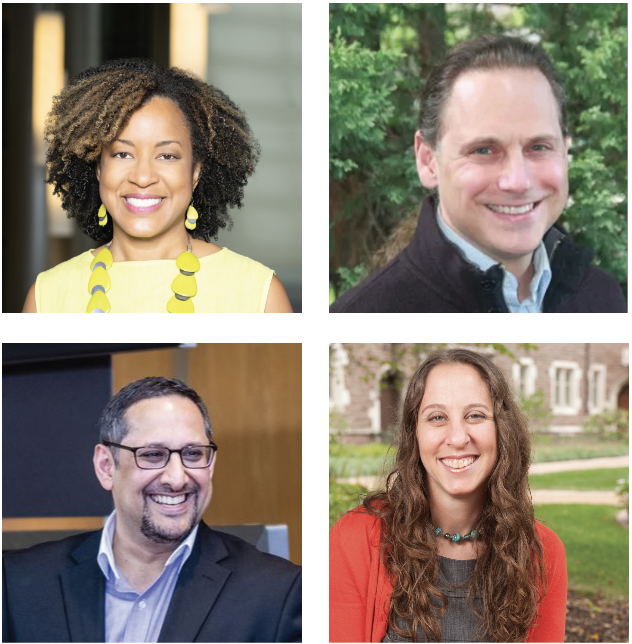Rifts and Revelations: How Religion Has Shaped Pandemic Responses in the United States
This event will take place online via Zoom. Registration is required here
Marla Frederick (Emory), Jim Oleske (Willamette Law), Munir Jiwa (Graduate Theological Union), Ronit Stahl (UC Berkeley)
Join us for a conversation about how religion has shaped responses to Covid-19 in the United States, including both the impact of the pandemic on religious communities, ideas of health and wellness, and the relationship between law and religious freedom, over the past couple of years.
Panelists:
Dr. Marla F. Frederick is the Asa Griggs Candler Professor of Religion and Culture at Emory Candler School of Theology. A leading ethnographer, she employs an interdisciplinary approach to examine the overlapping spheres of religion, race, gender, media, politics, and economics. Most recently, she co-authored Televised Redemption: Black Religious Media and Racial Empowerment (NYU Press, 2016), which examines how Black Christians, Muslims, and Hebrew Israelites use media for the “redemption” of the race.
Jim Oleske is Professor of Law at Lewis and Clark Law School. Prior to joining Lewis & Clark in 2011, Jim Oleske served as Chief of Staff of the White House Office of Legislative Affairs during the first two years of the Obama Administration. His research focuses on the intersection of religious liberty and other constitutional values, and he was a Fulbright Scholar based at Cardiff University’s Centre for Law and Religion in 2019
Munir Jiwa is the founding director of the Center for Islamic Studies and Assistant Professor of Islamic Studies at the Graduate Theological Union. He holds a Ph.D. and M.Phil. in Anthropology from Columbia University and an M.T.S. in World Religions from Harvard Divinity School. His research interests include Islam and Muslims in the West, media, aesthetics, religious pluralism and interfaith dialogue.
Ronit Stahl is an Associate Professor of History at UC Berkeley. Her work focuses on pluralism in American society by examining how politics, law, and religion interact in spaces such as the military and medicine. Her book, Enlisting Faith: How the Military Chaplaincy Shaped Religion and State in Modern America (Harvard University Press, 2017), traces the uneven processes through which the military struggled with, encouraged, and regulated religious pluralism over the twentieth century. Her current research examines the rise of institutional and corporate rights of conscience in health care.
Presented by the Othering & Belonging Institute and co-sponsored by the Berkeley Center for the Study of Religion.

